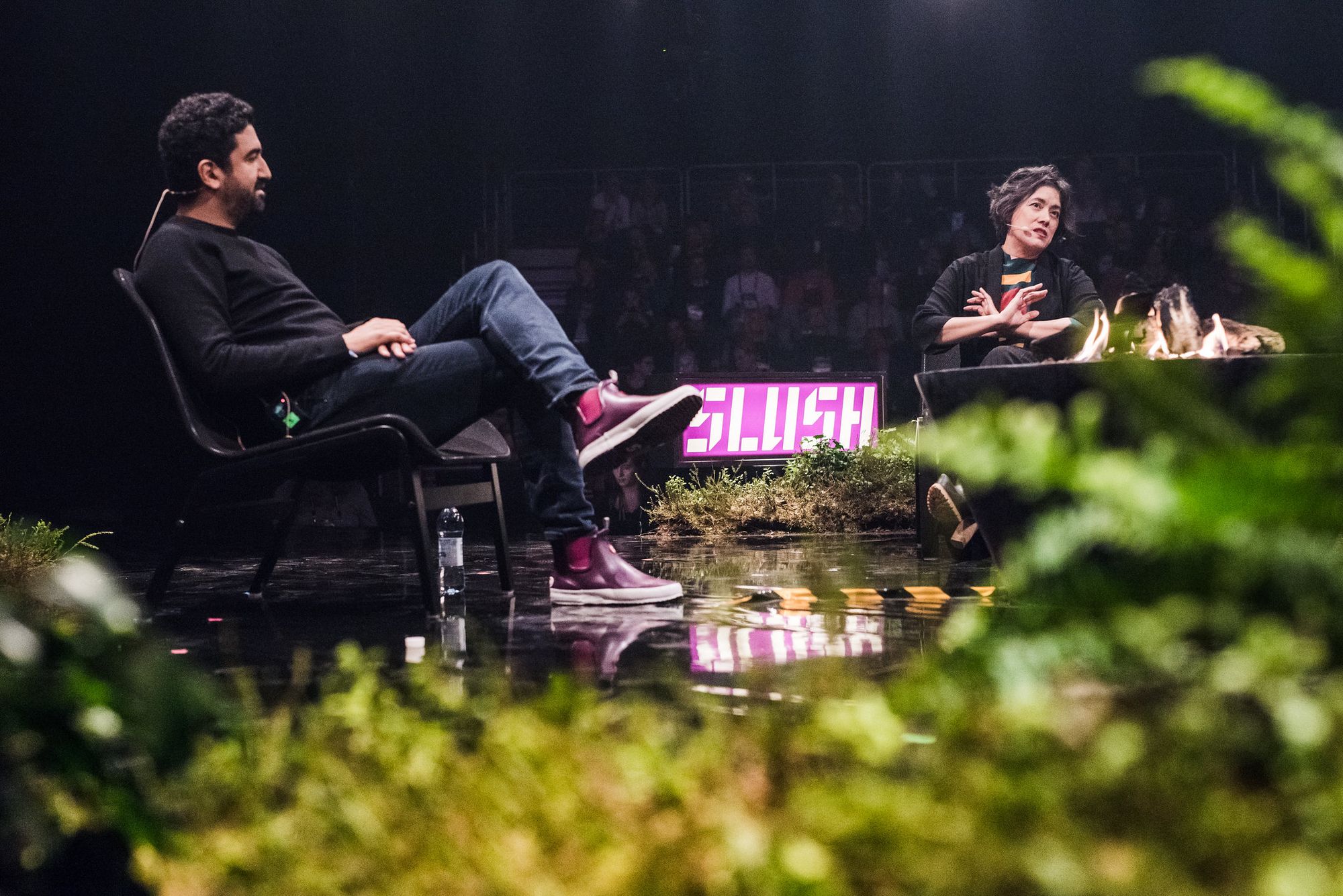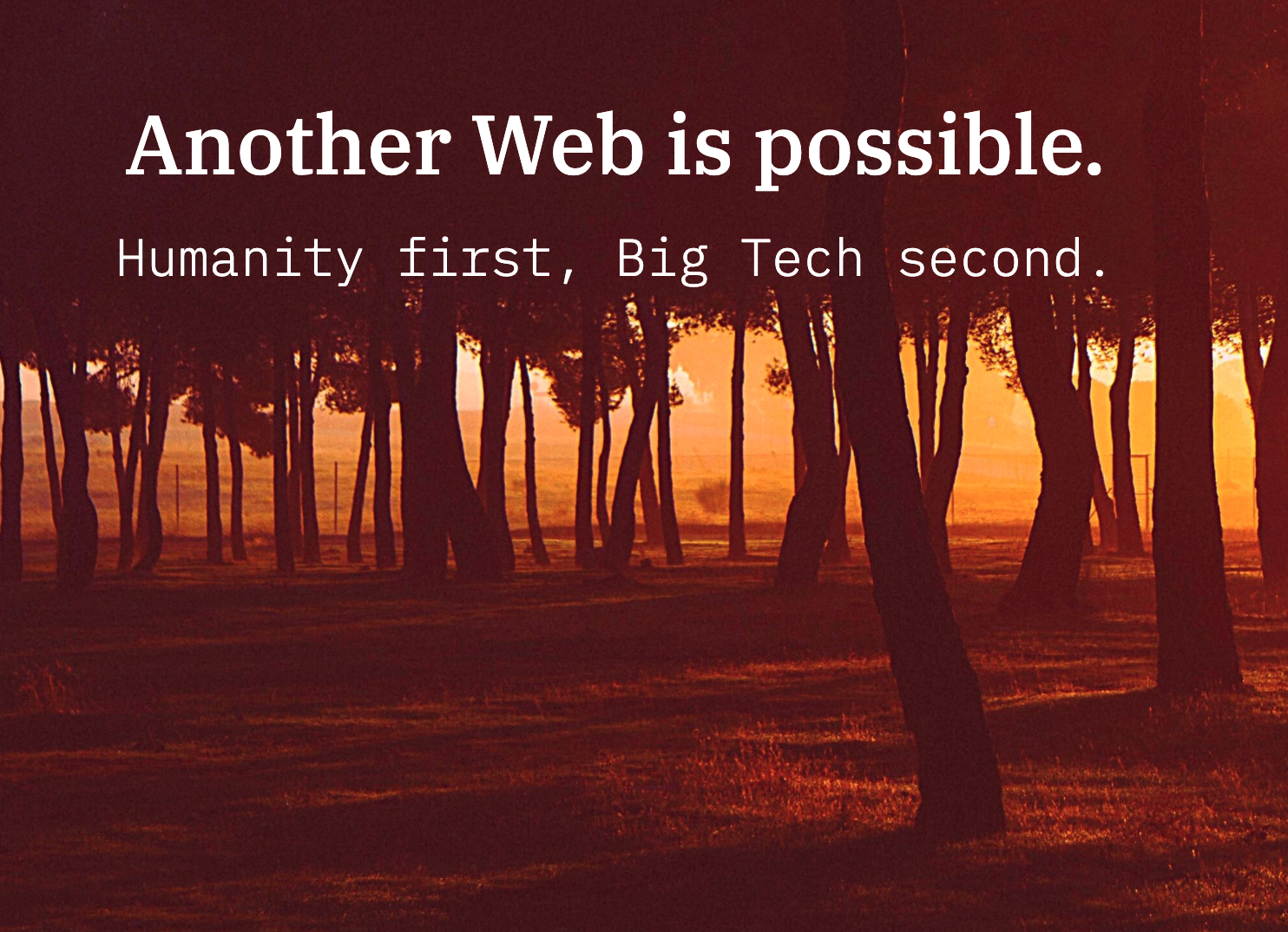Current Projects
I am currently working on three projects:
- Polite, the first platform designed for the post-mobile, post-cloud era.
- The Slow Web Initiative, a part studio, part think tank focused on the ethical renaissance of the Internet.
- A series of books covering the cultural history of the Internet.
I also advise companies, NGOs, and governments to address the fast-moving challenges of the post-mobile world, helping them on matters of digital sovereignty, resilience, and fair product design. If you are interested in these subjects, you can reach me on the contact form.

My belief: To fix climate change, we need to fix our technology stack first.
The only way to address our climate crisis is to design a different Tech world that understands and respects our human complexity and our different sets of values.
In this battle for the future of the Internet, I believe there will be a good side of history. This is why I am advocating that Europe be a role model in how technology can coexist with the real world in a symbiotic way.
I have been lucky to build, with my different teams, products that have passed the millions of users milestone. With Netvibes, we even reached dozens of millions. For a moment, we were the third Startpage in the US, the only independent platform standing behind Google and Yahoo but before AOL and Microsoft.
Building these products taught me the impact of good design and how poorly constructed software can have unintended consequences that are hard to fix afterward.
The always-on culture celebrated during the last decade has left us exhausted, unable to distinguish our intimate space from the artificial constructs created by big companies. With our attention weaponized, it has become harder than ever before to agree on what used to be the essential things of life.
As we are entering the post-mobile era, we need to start introducing more social science, geopolitics, anthropology, and culture in what we build.
In Tech, everything is cyclical. The context might change but understanding the culture of the previous iterations of innovation is crucial and as important as understanding the technologies themselves.
This is why I spend a lot of time researching the history of the Internet, home computers, and digital interfaces.
I believe that we are entering a phase of renewed simplification after the saturation of technology. I’ve called it the Slow Web because it reminds me how we decided to eat better after decades of unnatural food. A movement that even food architects inside large companies could not stop.
This great reconsideration of our most basic needs is now expanding and fostering a new social movement. Finally, people are ready to use ethical alternatives to Big Tech generic services. Users demand cleaner technology surroundings.
I believe helping nurture this transition is an incredible opportunity to teach our industry how to redesign the online world we want to live with. This is what keeps me excited.
Here are more details on the projects that I am working on:
Polite
Take back control of our digital life.

As we enter a post-social, post-mobile era, and possibly post-peace era, it is almost certain that the coming decade will be one of the most chaotic in our history.
The most critical question we have to ask ourselves is if we want the Internet to feed this chaos or become a force for personal organization. Many of the tools that we use every day have lost their souls and become mechanical constructs. Most of the content we have produced is spread across far too many places and has therefore lost its emotional value.

Polite is a Slow Web Platform in keeping with my vision behind Netvibes and Jolicloud, to become a digital life manager and the ultimate content aggregator. When we started the project, the Slow Web, Digital Sovereignty, Data portability, and Computational Intimacy were not in the conversation.

These must become the building blocks to rebuild the future of the Internet.
At the core of Polite, we’ve created a data portability framework called Dorian and used it to build a simple web desktop and a digital library. All your storage (google, dropbox) and social media content become easy to organize, searchable, and playable.
Slow Web Initiative
Our plan B to save the Internet

The Slow Web Initiative is part think tank and part studio committed to the ethical renaissance of the Internet.
I wrote the first article on Slow Web in 2010. In 2016 I wrote drifting, a piece about my mourning after the Paris attack of 2015, and what the web took away from us. This article received significant feedback and was also published in Die Zeit. After receiving many requests to provide Slow Web design guidelines, I have decided to launch this project.
Books

I will give more details soon.